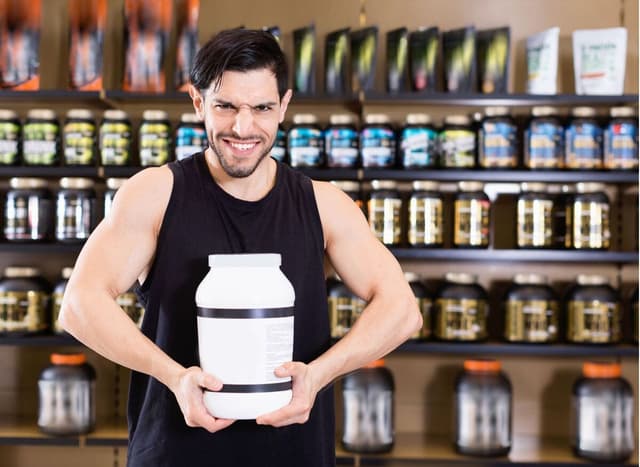Water Creatine Calculator: Fine-Tuning Hydration for Exceptional Results

December 2, 2024
It is a universal image in any weight room: a row of lifters pausing between sets, gulping water from their oversized bottles and wondering if they are truly maximizing their efforts. For those who incorporate creatine into their routines, a new question often arises: How much water is enough to pair effectively with this popular supplement? Enter the water creatine calculator, an online tool designed to remove the guesswork from daily hydration needs when using creatine.
This specialized calculator, while quietly unassuming, can produce significant shifts in how you train and recover. Within its digital formulas, you’ll discover strategies to balance fluid intake with your creatine dose, unlocking a path to steady gains and fewer muscle cramps along the way. In this article, we will explore the science linking creatine and hydration, dissect myths that have clouded common understanding, and offer a step-by-step guide to using a water creatine calculator. Our goal? To help you find clarity, consistency, and confidence in your fitness journey.
The Synergy of Creatine and Hydration
A Primer on Creatine
Creatine often shows up in headlines for its ability to enhance athletic performance and muscle growth. Naturally produced in small amounts by the body and found in foods such as red meat and fish, creatine works as a crucial energy reservoir for your muscles. During high-intensity workouts or short bursts of power, your body taps into its stores of creatine to regenerate adenosine triphosphate (ATP)—the chemical fuel for muscle contraction.
When taken as a dietary supplement, creatine increases the saturation of intramuscular creatine, effectively broadening your cells’ energy reserves. Over time, users may notice improvements in workout duration, post-exercise recovery, and overall strength. Yet, many overlook the deep connection between creatine uptake and water intake. Without proper hydration, the benefits of creatine can dwindle, leaving you with diminishing returns on your investment.
Why Water Matters
A large portion of your body comprises water, making it a critical factor in virtually every physiological process. Cells rely on fluids for nutrient transport, waste elimination, and temperature regulation. In the realm of fitness and strength building, the role of water intensifies. Muscle cells, when saturated with creatine, have an enhanced capacity to draw in more water. This process can lead to fuller-looking muscles and, for some, a slight but welcome increase in body weight as water is retained to support protein synthesis.
However, if the body is even mildly dehydrated, critical processes like creatine absorption, ATP regeneration, and muscle repair can stall. Dehydration may invite muscle cramps, reduced endurance, and delayed recovery—all obstacles on the path toward a productive workout. By contrast, maintaining sufficient water intake—guided by a water creatine calculator—helps ensure that your cells remain primed for peak performance.
Common Myths and Frequently Asked Questions
Our Top Recommendations

Optimum Nutrition Micronized Creatine Monohydrate Powder
Micronized for easy mixing, supports muscle growth and endurance.
See on Amazon$0.35 per 5g serving

Nutricost Creatine Monohydrate Micronized Powder
Third-party tested, non-GMO, 5g of pure creatine per serving.
See on Amazon$0.2 per 5g serving

NSF Certified, supports muscle power and recovery.
See on Amazon$0.46 per 5g serving

ProMix Creatine Monohydrate Powder
Micronized, additive-free, ideal for performance and recovery.
See on Amazon$0.36 per 5g serving

NOW Foods Sports Nutrition Unflavored
100% pure creatine, GMP certified, boosts strength and endurance.
See on Amazon$0.2 per 5g serving
Myth 1: “Extra Water Is Only Essential in the Loading Phase”
Many creatine regimens start with a loading phase—often around 20 grams per day for 5-7 days—before shifting to a lower maintenance dose of 3-5 grams. During this high-intensity loading period, many people rightly step up their water intake. However, it’s a mistake to dial hydration down the moment the loading phase ends. Creatine remains active in your muscle cells even at a reduced daily dose, which means consistent hydration is still crucial. If you drop your guard too abruptly, you risk diminishing the gains you worked hard to achieve during that initial phase.
Myth 2: “All Fluids Count Equally”
In the context of everyday life, reaching for juice, soda, or even a sports drink might seem like an easy way to meet fluid targets. But not all liquids perform equally when it comes to helping you reap creatine’s benefits. Juices and sodas can introduce substantial sugar and calorie loads, while certain sports drinks may include additives you don’t need if your diet is otherwise balanced. Plain water remains your best bet for an unadulterated, fuss-free hydrating agent. Of course, an occasional flavored beverage can be a useful motivator, but keep an eye on what else may come along with it—excessive sugars or sweeteners, for instance.
Myth 3: “More Water Is Always Better”
The age-old adage of “everything in moderation” applies to water, too. Although hydration is essential, overconsumption can lead to conditions like hyponatremia, an electrolyte imbalance that can be dangerous. The water creatine calculator takes into account your unique metrics—body weight, workout intensity, climate, and more—so you can avoid both dehydration and overhydration. Drinking in alignment with these guidelines offers a data-driven approach to muscle nourishment, rather than the sweeping guesswork of “just drink more.”
FAQs on Safety and Effectiveness
Is Creatine Safe with Proper Hydration?
For most healthy adults, creatine is widely deemed safe, especially when you’re conscientious about water intake.Do I Need Special Electrolyte Supplements?
That depends on factors like workout intensity and sweat loss. Electrolyte beverages can be beneficial, but they are not a blanket requirement.Where Can I Learn More?
Explore our articles for detailed informations on dosing, cycling, and best practices.
Creatine is lauded for its capacity to support increased strength, stamina, and muscle mass. Yet, these benefits hinge on an often underappreciated partnership: the synergy between creatine and consistent hydration. By using a water creatine calculator, you take a targeted approach to your water intake, empowering you to optimize the supplement’s impact rather than relying on vague measures or guesswork.
Adhering to a calculator’s guidance can streamline your routines, support fluid balance, and potentially amplify the benefits you reap from each workout session. Keep in mind that hydration needs can evolve over time—fluctuations in body weight, climate, and training intensity all factor in—so be prepared to revisit your numbers periodically.






